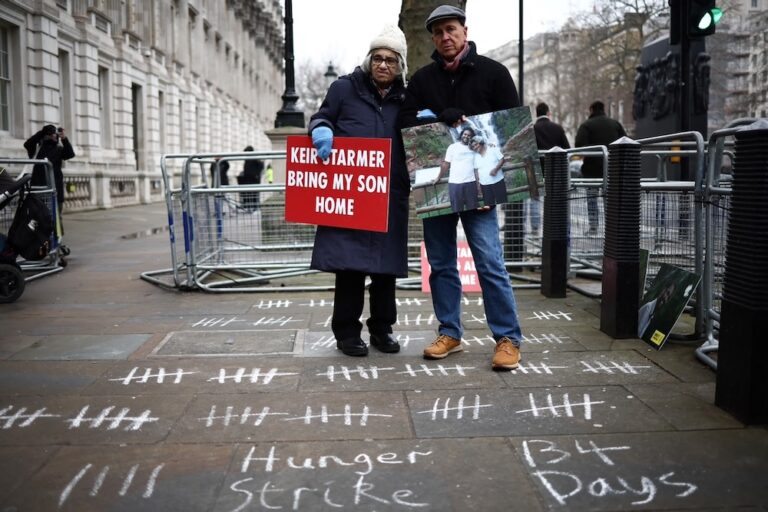(CPJ/IFEX) – The following is the text of a 28 June 1999 CPJ briefing: On July 1, Egyptian President Hosni Mubarak will meet in Washington, D.C., with President Clinton-the Egyptian leader’s third such visit to the White House in the last four years. The scheduled meeting comes at a time when Egyptian authorities have stepped […]
(CPJ/IFEX) – The following is the text of a 28 June 1999 CPJ briefing:
On July 1, Egyptian President Hosni Mubarak will meet in Washington, D.C.,
with President Clinton-the Egyptian leader’s third such visit to the White
House in the last four years. The scheduled meeting comes at a time when
Egyptian authorities have stepped up their attacks against the country’s
independent and opposition press.
On May 3, 1999, World Press Freedom Day, CPJ named Mubarak one of the
world’s 10 Enemies of the Press. The selection followed a year that saw a
sharp deterioration in press freedom in Egypt. In 1998, CPJ for the first
time documented cases of journalists imprisoned for libel in Egypt: four
were sent to jail under the country’s harsh press code. According to the
respected Cairo-based Center for Human Rights Legal Aid (CHRLA), another 72
journalists faced possible prison time in cases before the courts or under
investigation.
Egypt’s laws governing the press are among the most severe in the region.
The current press code, ratified into law by Mubarak in 1996, stipulates
prison sentences of up to one year for journalists convicted of defamation
(up to two years if the suit is filed by a public official). Fines can reach
20,000LE (US$5,900) for each offense. Other provisions of the penal code –
such as those proscribing “inciting hatred,” “violating public morality,”
“harming the national economy,” and offending a foreign head of state – pose
further threats to journalists and carry prison sentences of one to two
years. Calls from journalists and local and international NGOs to abolish
the penalty of imprisonment for libel and publication-related offenses
continue to be ignored by the government.
In the first half of 1999, authorities have kept up pressure on journalists.
Already, nine reporters and editors have been placed under investigation or
sent to trial by prosecutors for libel or other alleged publications
offenses. If convicted, they face between one to two years in prison, along
with stiff fines.
In addition to criminal prosecutions, authorities have actively censored
local and foreign publications during the past year. A leading independent
newspaper, the weekly Al-Dustur, was shut down by the Ministry of
Information in February 1998 for publishing a communiqué allegedly issued by
an armed Islamist group threatening Coptic Christian businessmen. A second
paper, the weekly Sawt al-Umma(composed of some former staff members from
Al-Dustur) was closed in February 1999 by the government’s Higher Press
Council (HPC) on technical grounds. The HPC charged that the newspaper’s
parent company failed to report new shareholders.
Government censorship of so-called “off-shore” publications -publications
that register abroad in order to circumvent government restrictions on
publishing licenses-intensified last year and remains a threat. All
publications that register in foreign countries are subject to screening by
the Ministry of Information. As a result, the Ministry has censored numerous
editions of respected publications including the weekly Middle East Times
and the fortnightly Cairo Times during the past year. It has also banned
dozens of issues of foreign publications like the London-based daily Al-Quds
al-Arabiin response to what authorities have deemed their unfavorable
coverage of Egyptian affairs.
As a major recipient of U.S. foreign assistance and a leading U.S. ally in
the Middle East, the Egyptian government, CPJ believes, should be held
accountable for its actions to stifle press freedom in Egypt. Included in
this packet are materials on the Egyptian government’s ongoing restrictions
of the press.


